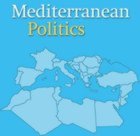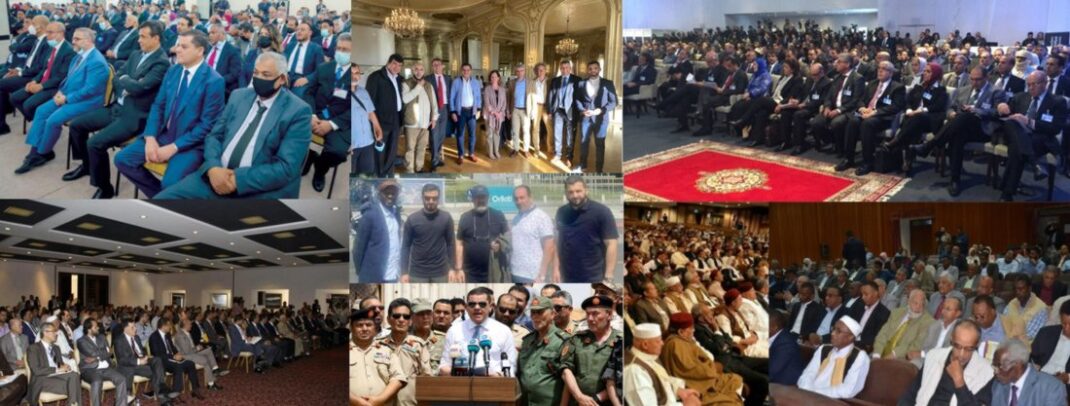Wolfram Lacher
 Tobruk: capitalizing on the Margins
Tobruk: capitalizing on the Margins
An oil port with a population of around 180,000 and located close to the Egyptian border, Tobruk had seen a thriving smuggling economy develop since the 1970s. In the late Qadhafi era, managing that economy became a main focus of the local elite, in addition to controlling the levers of the administration to direct state funds and to appropriate land.
Tobruk’s economy and local politics were run by an elite of prominent families operating in a social framework structured around four large tribes whose networks straddled the border. By and large, these tribal politicians eagerly entered the administration; several local notables who had been arrested in the 1970s or 1980s later reconciled with the regime.
Consequently, Tobruk’s elite, while consisting of competing networks at whose top even leading players of the same tribal sub-section might engage in persistent personal rivalries, was not riven by serious internal rifts.
When the uprising erupted, Tobruk’s army units and security forces, mostly recruited from local communities, refused to suppress demonstrations and defected to the rebels. Meeting on 18 February 2011, the Tobruk Popular Social Leadership still offered lukewarm support for the regime, but was then rapidly overtaken by events. Within days and almost without bloodshed, the city and its pragmatic tribal leaders had joined the revolution.
As a result, the revolution did not substantially alter the composition of the local elite. Some notables formerly excluded by the regime came to play a prominent role, among them Faraj Yasin al-Mabri, who had been temporarily imprisoned under Qadhafi and now headed Tobruk’s local council.
Only a handful of local regime officials, most prominently Al-Tayyib al-Safi, fled the country. Contrary to other cities in the east, no revolutionary armed groups formed in Tobruk, which was far from the front line and unthreatened by regime forces. A small number of Tobruk’s army officers and some civilians joined brigades from other eastern cities, but did not form separate units upon their return.
As elsewhere, Tobruk’s army units acquired wide-ranging independence from central oversight, and some officers recruited civilians into a new border guard unit, but no rivalry over the control of military force developed. Security in the city was assured primarily through the mutual deterrence of tribal loyalties and recourse to customary law to resolve disputes.
With Tobruk’s peripheral location and limited military weight, and without a strongly revolutionary or counter-revolutionary political stance, Tobruk’s elite rapidly lost influence in national politics after the end of the war. Local politicians were poorly positioned to participate in the aggressive rivalries over Tripoli institutions involving interests from Zintan, Misrata and other western cities.
The local council, which remained unelected until municipal elections in May 2014, was ineffective in mobilizing investment from the central government and was widely accused of wasting its budgets. Largely left to fend for themselves, local heavyweights instead took advantage of the booming smuggling economy or invested in rampant unregulated construction.
In the GNC, Tobruk’s representatives mostly sided with Jibril’s NFA, whose opposition to a sweeping exclusion of former regime officials resonated well with the town’s elite. The NFA’s defeat on the issue combined with the eastern groups’ frustration over their disadvantaged position in Tripoli to push many tribal politicians into the nascent movement for regional autonomy.
The participation of some Tobruk notables in the shutdown of eastern oil export terminals by the Political Bureau of Cyrenaica from August 2013 onwards was based on a complex political calculus. Tobruk’s involvement was crucial for the negotiating position of Ibrahim Jadran, the bureau’s head.
Jadran’s blockade at Ras Lanuf, Brega, Sidra and Zuwaitina – Libya’s ‘oil crescent’ – would have been much less of an acute problem for the government had exports continued via Tobruk’s Hariqa terminal.
The bureau’s demands included investigations into oil sector corruption; the relocation of the National Oil Corporation and other institutions to the east; amnesty, reintegration and the payment of back salaries for the Petroleum Facilities Guards (PFG) enforcing the blockade; and the appointment of a new PFG head.
This reflected in part the roots of the unrest among PFG units led by Jadran, which had been in charge of securing the export terminals in the oil crescent.
In Tobruk, however, the closure was not enforced by the PFG; instead, the mere threat by local heavyweights that any tanker entering the port would be attacked sufficed. For Jadran’s allies in Tobruk, the potential prize was control over oil sector institutions and, possibly, the direct sale of crude held in the terminals’ storage tanks.
The local elite was far from united over the issue. Several prominent players were fiercely opposed to the blockade, among them Faraj Yasin, a cousin and longstanding political rival of the leading figure behind the closure of Hariqa, Mansur Salihin.
Given Tobruk’s neglect by the Tripoli government, however, there was little incentive to confront the blockaders as long as they failed to obtain material benefits from their brazen acts. At the regional level, several leading federalist politicians also distanced themselves from Jadran, whose personal ambitions and focus on major financial gain appeared all too obvious.
Eventually, in March 2014, an almost successful attempt by Jadran to sell 200,000 barrels of oil, aborted only when the US Navy seized the tanker carrying the cargo off Cyprus, led the GNC to authorize military action.
Jadran’s losses in clashes with advancing Misratan units, and his willingness to attack other eastern brigades, weakened his position both in the east and vis-à-vis the government.
In April, the government agreed to some of the demands of Jadran’s PFG, including an allegedly substantial cash payment, but without granting concessions on oil sector institutions, let alone regional autonomy. Whatever share Jadran’s allies in Tobruk were able to negotiate, it certainly fell far short of their demands. Their strategy had proven at least a partial failure.
Another opportunity for Tobruk’s elite to play a role in national politics came with General Haftar’s May 2014 offensive.
Operation Dignity was not only a campaign by old army units and tribal militias against Islamist and revolutionary brigades in Benghazi, but also part of a national political battle against the revolutionary camp.
As such, it gained the support of many local political players and military officers. A handful of officers in senior positions opposed Haftar’s campaign, but did not do so openly, to avoid coming under pressure.
Air force officers loyal to Haftar even used the local military airbase for mounting attacks on targets in Benghazi. Proponents of regional autonomy, in turn, most likely saw in Haftar’s open defiance of the chief of staff and his attempt to wrestle power from the GNC an opportunity to create a parallel government in the east.
More generally, the open confrontation with the revolutionary camp allowed former regime figures to reassume prominent local positions, after having previously kept a low profile. In Tobruk, this included Al-Tayyib al-Sharif and Faraj Yadam Buatiwa.
In sum, different local interests joined to back the all-out revolt against the Tripoli government led by Haftar.
Tobruk’s support for the loose tactical alliance of Haftar, the federalists and the NFA acquired broader significance in August 2014, when MPs affiliated with this alliance conspired to hold the inaugural and subsequent sessions of the House of Representatives in Tobruk.
The move to Tobruk, and its acceptance by a majority of MPs, gave a clear advantage to the revolutionary camp’s adversaries, but it also exposed the discrepancy between the balance of power in the rump parliament and that on the ground. The institution Tobruk was hosting represented only one arena of struggles among others. In many ways, the real struggles continued in Tripoli and Benghazi.
Tobruk’s elite suddenly found itself thrust from the wings into the spotlight. The town’s politicians strongly supported the uncompromising approach adopted by the new majority in the rump parliament. Tobruk did not have to fear much direct backlash, given its peripheral location.
Beyond this general stance, however, rival local politicians associated themselves with divergent interests in the fractious alliance. Relations with Haftar’s command structure, in particular, differed sharply between leading local players.
Some local politicians and officers associated themselves with Haftar, expecting to benefit from the close alliance emerging between the rump parliament and the Egyptian leadership under Abdel Fatah al-Sisi, not least because Tobruk’s location was crucial to the provision of Egyptian military support.
Among proponents of regional autonomy, by contrast, relations with Haftar were often strained due to what appeared to be conflicting political objectives. Even among themselves, the federalists were divided.
For example, only one faction of Tobruk federalists associated itself with Jadran. When the latter re-emerged in November 2014 threatening secession, three of the six politicians appearing with him were from Tobruk.
Overall, however, Tobruk’s stance played into the hands of the autonomy movement, particularly the rump parliament’s determination to monopolize formal authority even if that meant a loss of control over much of western Libya. Tobruk’s support for the rump parliament therefore served diverse local interests and agendas, but it effectively helped set Libya on a path towards de facto partition.
***
Wolfram Lacher is Senior Associate at the German Institute for International and Security Affairs (SWP). His research focuses on conflict dynamics in Libya and the Sahel region, and relies on frequent fieldwork.
_______________





